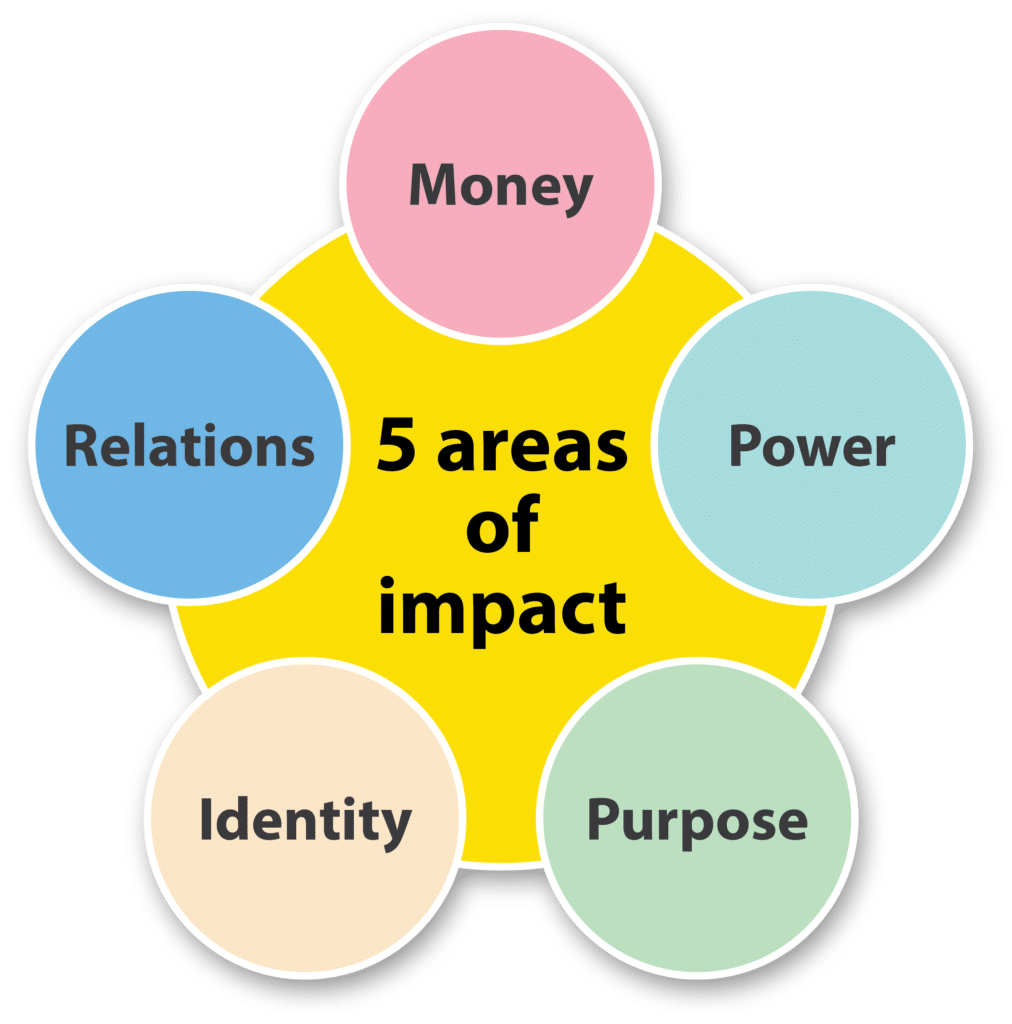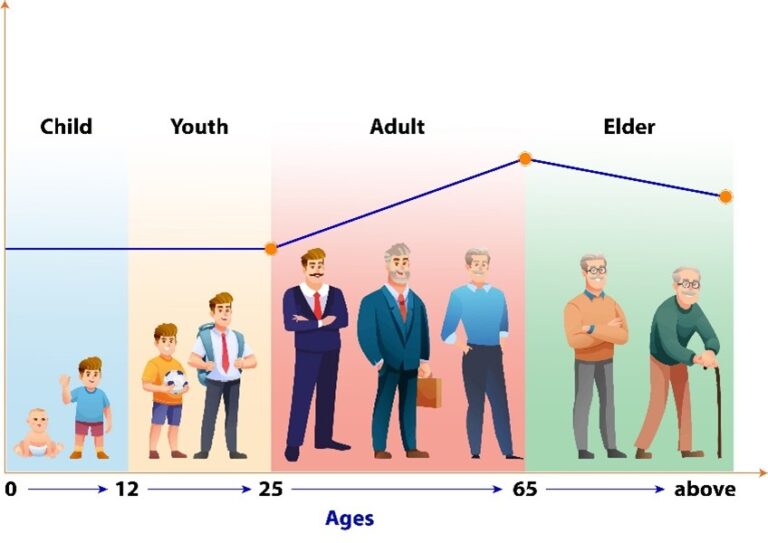For some people, retirement could be understood as a time to relax, travel, and pursue long-forgotten hobbies. However, for a majority of people, who have no regular source of income in this phase, it brings a host of challenges that reshape their lives. When regular earning stops, a ripple effect begins, impacting various aspects of life. Such a shift – both personal and professional – is most profoundly felt in certain key areas.

Generally, retirees experience insecurity and a sense of loss on 5 fronts – Money, Power, Purpose, Identity, and Relations.
Without a steady income, retirees experience financial strain. Power and Purpose, once tied to professional roles, can diminish leaving an emptiness in their lives. The loss of identity—no longer identifying as a professional—leads to a sense of personal displacement. In addition, relationships often fade as daily social connections from work life shrink.

For an average individual, the financial and social standing generally peaks in the adult years, particularly between 25 and 65, when earnings, career status, and social engagement are at their highest. However, once earnings stop or reduce, a gradual decline in lifestyle follows. Without a paycheck, many retirees experience reduced financial security, impacting their ability to afford healthcare, social activities, and a comfortable standard of living.
Additionally, retirement brings along other challenges. One of the most significant is the risk of decline—both physical and mental. The lack of a structured work routine reduces physical activity and mental stimulation, which leads to bodily and cognitive decline over time, particularly if retirees disengage from active learning and physical exercise.
Another major challenge is the potential loss of a spouse. Losing a spouse not only brings emotional sorrow but also disrupts daily routines and diminishes social connections, intensifying the sense of grief and isolation. Consequently, retirees are likely to fall into Depression, leading to mental retirement, which is a combined effect of physical decline, loss of social roles, and feelings of purposelessness.
Retirees today face not just the traditional challenges of financial and social adjustment but also new-age hurdles such as keeping pace with fast-paced technological advancements and bridging the generation gap.
Stay tuned for the next article, where we explore how retirees can navigate these modern challenges and find meaningful ways to stay connected and relevant.
References & Resources
Moynes, R. (2023, March 14). The 4 phases of retirement | Dr. Riley Moynes | TEDxSurrey [Video]. YouTube. https://www.youtube.com/watch?v=DMHMOQ_054U
Shields, J. (2019, March 6). Retirement redefined | John Shields | TEDxOcala [Video]. YouTube. https://www.youtube.com/watch?v=xABqKHyg2RY






2 thoughts on “Real Challenges of a Retired Life – Article 2”
Hi there! I simply would like to give you a huge thumbs
up for the excellent information you have right
here on this post. I am coming back to your site for more soon.
I couldn’t resist commenting. Exceptionally well written!
Comments are closed.